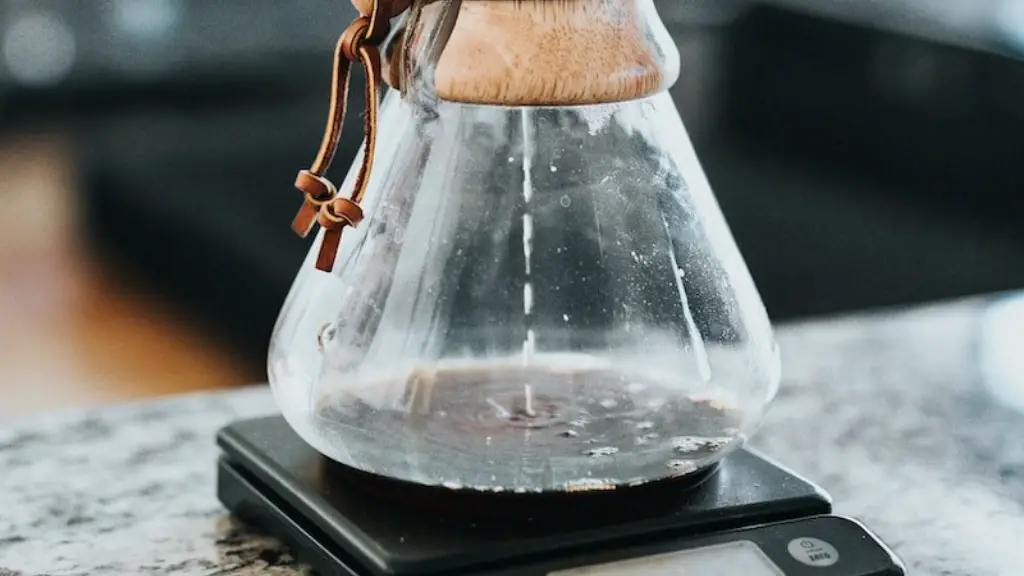Caffeine and its Effects
Caffeine is a stimulant that affects the human body in various ways. It is found naturally in coffee, tea, energy drinks, and chocolate. When consumed, caffeine travels to the brain, where it blocks the action of adenosine, a neurotransmitter associated with sleepiness and fatigue. As a result, people may experience a temporary increase in energy and alertness. However, caffeine also has a significant downside, as it can cause insomnia and interrupted sleep, as well as a range of other health issues.
Research shows that, for most people, up to 400 milligrams of caffeine (about four cups of coffee) per day is considered safe. However, even moderate amounts of caffeine can have negative effects on the body and can interfere with one’s ability to get a good night’s sleep. For example, if coffee is consumed too close to bedtime, the body may still be processing the caffeine when it is time to sleep, making it difficult to fall asleep and stay asleep.
In addition to disrupting sleep, caffeine can also affect the body’s mood, energy levels, and performance. For example, a study conducted in 2018 found that after drinking coffee, people had an increase in physical and mental alertness, but also experienced increased feelings of stress. The study also connected coffee consumption with increased levels of cortisol and adrenaline, two hormones that are common indicators of stress.
Why Coffee Makes You Sleepy
Though coffee contains caffeine, which is thought to be an energy booster, it can also actually cause you to feel sleepy and drowsy. This is because coffee can interfere with your body’s natural circadian rhythm and mess with your sleep/wake cycle, resulting in fatigue and sleepiness after consuming it.
Another possible explanation is that caffeine can interfere with your body’s natural production of adenosine. Adenosine is a neurotransmitter that helps regulate your sleep/wake cycle, and is naturally produced in the body when you are asleep. When caffeine blocks the action of adenosine, it can make you feel more alert and energetic. However, as the caffeine wears off, the blocked adenosine can cause you to feel sleepy and drowsy as your body is no longer able to adequately regulate its sleep/wake cycle.
In addition, caffeine can also have an effect on the production of melatonin, a hormone that promotes sleep. Research suggests that too much caffeine can lead to a decrease in melatonin production, making it harder for your body to fall asleep and stay asleep.
How to Avoid Drowsy Feeling after Drinking Coffee
In order to avoid feeling sleepy after drinking coffee, it is important to stick to the recommended amount of caffeine intake. Generally speaking, the recommended daily caffeine intake is no more than 400 milligrams per day, or about four cups of coffee. It is also important to be mindful of when you are drinking coffee and how close to bedtime it is. Generally, it is best to avoid drinking coffee within 6 hours of going to bed.
In addition, it is important to be mindful of how your body responds to caffeine. Different people have different levels of sensitivity to caffeine, and how you respond to it can vary depending on things like your body size, age, genetics, diet, and overall health. Therefore, it is important to take the time to figure out your own individual caffeine tolerance as this can help you to avoid feeling sleepy and drowsy after drinking coffee.
Alternatives to Coffee
If you are looking for an alternative to coffee that won’t make you sleepy after consuming it, there are a few options available. For example, tea is generally lower in caffeine than coffee, so you can still get an energy boost without the side effects. Other alternatives include energy drinks, matcha, and hot cocoa.
If you still want to get the benefits of caffeine but need something that won’t make you feel drowsy, there are also caffeine-free alternatives such as vitamin-infused beverages, herbal teas, or sparkling water with a twist of lemon or lime.
Conclusion
Though caffeine can provide a temporary energy boost, it can also have unwanted side effects, such as making you feel sleepy and fatigued after consumption. Understanding your own individual caffeine tolerance can help you to avoid feeling overly sleepy and fatigued after drinking coffee. There are also some alternatives to coffee that can provide energy without leaving you feeling drowsy.
Coffee and its Health Benefits
Despite its ability to make people sleepy after consumption, there are a number of health benefits that are associated with coffee. For example, studies have suggested that coffee can reduce inflammation, improve physical performance, and lower the risk of certain diseases, such as diabetes and Alzheimer’s. In addition, drinking coffee has been linked to a reduced risk of depression and anxiety.
At the same time, it is important to remember that there are potential risks associated with drinking coffee. For example, studies have linked coffee consumption to an increased risk of cardiovascular disease, hypertension, and a number of other health conditions. Therefore, it is important to be mindful of your daily caffeine intake, as well as the potential risks associated with drinking too much coffee.
Optimizing Coffee Consumption
When optimizing coffee consumption, it is important to remember that everyone is different and will have different tolerance levels when it comes to caffeine. Therefore, it is important to figure out what works best for you. Pay attention to how you are feeling after you drink coffee, and adjust your intake accordingly.
It is also important to be mindful of how your coffee is prepared. Adding sugar or cream can add calories to your beverage and can increase your risk of health issues, such as weight gain and diabetes. Therefore, it is important to choose coffee beverages that are low in added sugar and fat.
Coffee and Quality of Sleep
Lastly, it is important to be mindful of how close to bedtime you consume your cup of coffee. As mentioned earlier, caffeine can interfere with your body’s natural production of adenosine, which helps regulate your sleep/wake cycle. Therefore, drinking coffee too close to bedtime can interfere with your body’s ability to fall asleep and stay asleep, leading to poor quality sleep.
In addition, drinking coffee too close to bedtime can also cause your body to release the stress hormones cortisol and adrenaline, which can make it even more difficult to fall asleep. Therefore, it is important to avoid drinking coffee within 6 hours of bedtime in order to get a good night’s sleep.
Coffee and Energy Levels
Though coffee can provide a temporary energy boost, it can also lead to a crash in energy levels if too much is consumed. Research suggests that if you consume too much caffeine, your body may experience feelings of anxiety, irritability, and fatigue. Therefore, it is important to be mindful of your daily caffeine consumption in order to avoid feeling overly tired and fatigued.
In addition, it is important to consider the type of coffee beverage that you are consuming. For example, latte-style drinks with added sugar, cream, and syrup can be more energy-draining than other types of coffee beverages. Therefore, it is important to choose coffee beverages that are lower in added sugar, fat, and calories in order to avoid an energy crash.
Coffee can be a great way to get an energy boost, but it can also make you feel sleepy and fatigued after consumption. Therefore, it is important to be mindful of your own individual caffeine tolerance, as well as how close to bedtime you consume your cup of coffee. Additionally, it is important to be aware of the potential health benefits and risks associated with drinking coffee in order to optimize its consumption.





